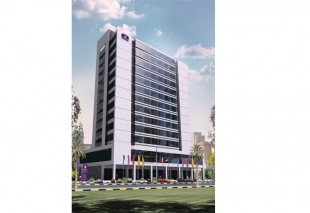

Building on Saudi's budget market

The market for budget hotel brands in Saudi Arabia is one full of opportunities — done well, it promises profits, but offering too much for too little confuses clients and cash flow, warn experts.
Between now and 2014, around 1607 budget hotel rooms are expected to enter the market in Saudi Arabia, according to new research by Christie + Co.
In addition to this, on June 27 Wyndham Hotel Group signed a master franchise agreement with Saudi Automotive Services Company (SASCO) to develop 20 hotels under its budget brand Super 8 in KSA over the next five years. A number of homegrown operators have also emerged in this segment.
The influx of operators signing deals for their lower-tier brands in Saudi Arabia is being driven by increased demand for affordable hotel accommodation following a crackdown on hotel classifications by the Saudi Commission of Tourism and Antiquities (SCTA).
“The domestic market dominates the overall tourism industry — outside the religious area — so that covers travellers of wealth as well as those of limited means,” commented Christie + Co director for the Middle East and Northern Africa John Podaras.
“There wasn’t always a lack of affordable hotels in Saudi Arabia, but many of them were awful. It horrifies me to think that people were forced to stay in such conditions. When SCTA took over the classifications system from the various chambers of commerce around three or four years ago, many of these hotels dwindled away. Today, if you cannot provide a quality product, you become declassified,” Podaras explained.
While the number of budget rooms has fallen, demand remains — leaving the door open for international operators to step in with their limited-service and mid-tier brands — many of which are still unknown in the Saudi Arabian market.
In 2012, new openings, including Accor’s Ibis and Golden Tulip’s Tulip Inn, will add 514 limited-service rooms. Next year, the introduction of HMH’s EWA brand and Marriott’s midscale Residence Inn will together add a further 223 rooms. Supply will be ramped up significantly in 2014 with 915 budget rooms due to come online — distributed among brands such as Rotana’s Centro and IHG’s Holiday Inn Express and Accor’s Ibis.
With only 25% of Saudi Arabia’s hotel supply currently in the three-star budget market — according to Christie + Co’s latest data — many experts believe that there will be a lot more announcements over the coming years.
“At the moment, 70% of the pipeline is still upscale,” said Philippe Baretaud, vice president, head of development for Europe, the Middle East and Africa, Accor.
Darroch Crawford, managing director, Premier Inn Hotels MEA added: “It’s an anomaly in the Saudi Arabian market and I think it’s going to change rapidly over the next three to four years.
Article continues on next page ...
Balancing act
For the hotelier, the budget boom can be a profitable one — but only if the product is right.
“This sector offers exceptional returns on investment and the region is starting to realise this,” Crawford observed.
“In the last year or two, more people are identifying the success of budget brands and realising the returns are exceptional. The whole project cost is considerably less – from building to operating. It’s a very efficient business model and those people who put return on investments ahead of ego are getting returns very fast.”
Guy Wilkinson, director of Viability, a hospitality consulting firm, added: “It’s been proven in several markets that the level of profitability is opposite to the number of stars. You have long-term value creation in a five-star product, whereas, in economy, you’re looking for direct return on investment.
“ROI in the economy sector is exceptional — we have some running at 70% GOPPAR, but it’s important not to try to be something you’re not,” Wilkinson warned.
Article continues on next page ...
Knowing your place
Economy hotels, however, must be kept simple; getting carried away in the design and development phases can lead to trouble, according to the hoteliers.
“There is always a temptation to have larger rooms and add more services, but we need to have a profitable model and these all represent additional costs. An economy hotel doesn’t mean offering no service — it’s a modern hotel you can be proud of, offering services such as a good bed, TV, good internet and value for money,” Accor’s Baretaud said.
But it is not the client’s expectations the operators are struggling to manage — it’s the owner’s.
“We’re trying to explain to investors about the differences between a limited-service and a big-service property and how it is reflected in the facilities. You cannot have a big banquet hall in a limited-service hotel. That will require investment in the back-of-house and you’re pushing into the next tier, then management becomes confused and return on investment becomes confused,” explained Samir Baidas, senior vice president — International Lodging Development, Marriott International Inc.
“That’s a fine line that we’re working on to educate and support our investors about. If this is the product they believe the market wants, they need to go to the next tier,” added Baidas.
However, Crawford said you have to be prepared to adapt to market requirements.
“We have made rooms slightly larger to suit the market in this part of the world. In the Kingdom of Saudi Arabia you also need to introduce room service,” Crawford added, as an example.
“When we opened in the UAE we didn’t have room service and it became the number one service that people insisted on — so we’ve introduced it now. We don’t have it in the UK, but here it’s a culture. People expect it.”
Crawford concluded that costs are the main issue: “You have to be flexible but agree to keep it simple and find simple, low-cost ways of managing expectations.”